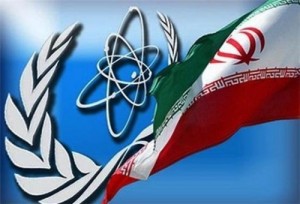 TEHRAN (FNA)- Iran and the International Atomic Energy Agency (IAEA) will start their new round of expert talks in the Austrian capital on Monday.
TEHRAN (FNA)- Iran and the International Atomic Energy Agency (IAEA) will start their new round of expert talks in the Austrian capital on Monday.Vienna is scheduled to host the talks between nuclear experts of Iran and the IAEA on October 28-29.
Iran's Residing Representative at the IAEA Reza Najafi will head the Iranian delegation and IAEA Deputy Director-General and Head of the Safeguards Department Herman Nackaerts will lead the IAEA team.
Before the upcoming Iran-IAEA experts meeting, Iranian Deputy Foreign Minister for Legal and International Affairs Seyed Abbas Araqchi and IAEA Director General Yukiya Amano will meet in Vienna tomorrow.
Late in September, Iran and the IAEA held talks in Vienna and discussed issues pertaining to Tehran�s nuclear program. They resumed their fresh talks in the Austrian capital ten hours after the historic ministerial level nuclear talks between the Islamic Republic and the six world powers in New York.
Najafi headed the Iranian delegation in talks with a group of the agency�s experts.
Najafi replaced Iran�s former ambassador to IAEA Ali Asqar Soltaniyeh shortly after Iranian President Hassan Rouhani came to power.
Iran and the IAEA last met in Vienna on May 15. The meeting, which was the 10th of its kind, was presided by Soltaniyeh and Nackaerts.
Iran appointed Najafi as its new envoy to the IAEA late in August.
The IAEA is the world's center of cooperation in the nuclear field. It was set up as the world�s �Atoms for Peace� organization in 1957 within the United Nations family.
The Agency works with its Member States and multiple partners worldwide to promote safe, secure and peaceful nuclear technologies.
The IAEA Secretariat is headquartered at the Vienna International Center. Operational liaison and regional offices are located in Geneva, Switzerland; New York, USA; Toronto, Canada; and Tokyo, Japan.
The IAEA runs or supports research centers and scientific laboratories in Vienna and Seibersdorf, Austria; Monaco; and Trieste, Italy.
Iran says its nuclear program is a peaceful drive to produce electricity so that the world's fourth-largest crude exporter can sell more of its oil and gas abroad. Tehran also stresses that the country is pursuing a civilian path to provide power to the growing number of Iranian population, whose fossil fuel would eventually run dry.
The US and its western allies allege that Iran is pursuing a nuclear weapons program while they have never presented corroborative evidence to substantiate their allegations against the Islamic Republic.
Iran is under four rounds of UN Security Council sanctions for turning down West's calls to give up its right of uranium enrichment, saying the demand is politically tainted and illogical.
Numerous diplomatic initiatives over the past decade to find a peaceful solution have failed.
Iran has so far ruled out halting or limiting its nuclear work in exchange for trade and other incentives, saying that renouncing its rights under the Non-Proliferation Treaty (NPT) would encourage the world powers to put further pressure on the country and would not lead to a change in the West's hardline stance on Tehran.
Iran has also insisted that it would continue enriching uranium because it needs to provide fuel to a 300-megawatt light-water reactor it is building in the Southwestern town of Darkhoveyn as well as its first nuclear power plant in the Southern port city of Bushehr.
Tehran has repeatedly said that it considers its nuclear case closed as it has come clean of IAEA's questions and suspicions about its past nuclear activities.
Analysts believe that the US is at loggerheads with Iran due mainly to the independent and home-grown nature of Tehran's nuclear technology, which gives the Islamic Republic the potential to turn into a world power and a role model for the other third-world countries. Washington has laid much pressure on Iran to make it give up the most sensitive and advanced part of the technology, which is uranium enrichment, a process used for producing nuclear fuel for power plants.
By Fars News Agency
The Iran Project is not responsible for the content of quoted articles.










